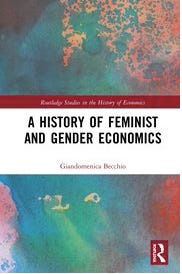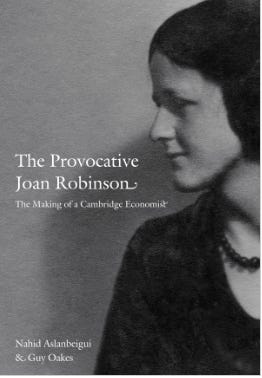Best of #econtwitter - Week of May 2, 2021
May 03, 2021
Welcome readers old and new to this week’s edition of Best of Econtwitter. Thanks to those sharing suggestions, over email or on Twitter @just_economics.
Paper summary threads

Tommaso Porzio@PorzioTommaso
📢 After too many years, new working paper with Dauth, Lee, and @SebastianFind finally posted 👇
Result: adoption of West institutions in East Germany led to labor reallocation, unravelled previous misallocation and triggered wage growth.
Link: bit.ly/3sUkCLA.
A 🧵

1:04 AM · Apr 27, 2021
43 Reposts · 170 Likes

Todd Morris@ToddMorrisEcon
In 2007, Australia's most populous state banned first-year drivers from carrying 2+ passengers between 11pm and 4:59am. Using daytime outcomes as controls, we observe parallel pre-trends in relative crash rates and a sharp reduction in late-night crashes upon implementation. 2/9

12:31 PM · Apr 26, 2021

Chris Warshaw@cwarshaw
Consistent with prior work on Fox News (e.g. @gregmartinphd), we find that Fox boosted Republicans in recent presidential elections. A one SD decrease in FNC channel position increased Trump's vote share by .6 percentage points in 2016/2020 (enough to tip several close states).

4:00 PM · Apr 30, 2021
10 Reposts · 36 Likes

Robert Metcalfe@RDMetcalfe
Very excited that our paper on the efficiency and equity impacts of energy subsidies is out today in the American Economic Review.
aeaweb.org/articles/pdf/d…

4:13 PM · Apr 28, 2021
37 Reposts · 222 Likes

pierrecboyer@pierrecboyer
New publication AEJ: Economic Policy @AEAjournals “The Role of Electoral Incentives for #PolicyInnovation: Evidence from the US #Welfare Reform” (joint with Andreas Bernecker and Christina Gathmann) 👇👇👇

2:24 PM · Apr 30, 2021
18 Reposts · 79 Likes

Tommaso Porzio@PorzioTommaso
Awesome paper offering a structural perspective on one of the most discussed recent macro fact: the increased in markups.
Key result: structural transformations in the economy reduced welfare by 9%.
obvious 🙋♂️: what if technological progress is endogenous? Would results hold?

Simon Mongey @Simon_Mongey
1/New working paper with @jan_eeckhout and Jan De Loecker. Short 🧵 (https://t.co/ZdKRYz5deS) https://t.co/mUYXWkCjev
11:43 PM · Apr 29, 2021
2 Reposts · 19 Likes

David Baqaee@DBaqaee
How does welfare respond to price and technology shocks when preferences are non-homothetic and subject to shocks? We generalize Domar aggregation, which is the basis for constructing economic aggregates, to answer this question. 2/N
7:10 PM · Apr 30, 2021
7 Likes

Arindrajit Dube@arindube
A few methodological points about our paper on UI which is out today in AEJ-Policy.
Potentially relevant for those interested in DiD. [Almost feels like a clickbait these days to say it ...]
1/

Ethan Kaplan @KaplanEthan
Out today: a small positive, statistically insignificant (statistical zero) impact during the Great Recession of increasing UI duration from a median of 26 weeks to up to 99 weeks: https://t.co/F9KyEAqQy1.
7:40 PM · Apr 30, 2021
13 Reposts · 103 Likes

Lyman Stone 石來民 🦬🦬🦬@lymanstoneky
THIS PAPER IS SO COOL!
They digitized millions of Wikipedia person-entries to create a "history of notable people." They show trends in the migration, gender ratio, industry background, geography, life expectancy, etc, of "notable people."
ideas.repec.org
A Brief History of Human Time: Exploring a database of ’notable people

5:50 PM · Apr 27, 2021
17 Reposts · 86 Likes

Lyman Stone 石來民 🦬🦬🦬@lymanstoneky
So the notable people in America 1750-1890 were apparently *overwhelmingly* politicians.
They were displaced over time *primarily* by celebrities and athletes.
And that's the history of civics in America folks!

6:41 PM · Apr 27, 2021
4 Reposts · 21 Likes

Justin Wolfers@JustinWolfers
Things I didn't know: The share of the population identifying as left handed varies with economic development.
(And there's a whole paper about it: ftp.iza.org/dp14237.pdf)

12:08 AM · Apr 30, 2021
30 Reposts · 181 Likes
More: life insurance; experiment with FB job applicants; voluntary disclosure theory
Public goods

Michal Feldman@MichalFeldman9
👫 Auction Theory for Kids 👫
A new booklet for curious children
Joint work with my daughter, Adva Feldman.
Thank you Adva for the beautiful illustrations!
A pdf version:
mfeldman.sites.tau.ac.il/kids

2:33 PM · Apr 29, 2021
39 Reposts · 200 Likes
Interesting discussions

Maxim Ananyev@maximananyev
My attempt at this joke. Econ papers

5:07 AM · Apr 30, 2021
2.1K Reposts · 10.8K Likes
^“Types of X paper”, the meme format of the week. More (non-comprehensive): development; macro; trade; applied metrics; economic history; economic sociology; history of economics; health econ; management; marketing; Argentinian econ; market design; applied micro

Paul Goldsmith-Pinkham@paulgp
What are some striking economic statistics that you think everyone should know?
I'll start with five facts that have informed my research (with sources):
7:19 PM · Apr 26, 2021
130 Reposts · 609 Likes

Stephen Holt@SteveBHolt
A convo last night noted that, anecdotally, low-income people often take entire days for routine appointments that high-income folks usually schedule for a long lunch. I got curious about the income gap in time spent waiting for things, so I looked it up in the ATUS. 1/n
10:17 PM · Apr 26, 2021
9.69K Reposts · 51.4K Likes
^“You should write this up into a short paper” folks it’s 2021 just cite the tweet

Beatrice Cherrier@Undercoverhist
1/ In the wake of the NYT article on Robinson, I got emails asking how to feminize history of econ reads & teaching. I didn’t find any online reference list on the history of ♀ economists, so here’s a half-baked one:




8:54 PM · Apr 29, 2021
130 Reposts · 343 Likes

Shengwu Li@ShengwuLi
For new APs / postdocs in economics: Probably you’re about to say yes to too many referee requests. Declining is easier when you have a rule. This is the finite automaton that implements my rule.

4:02 PM · Apr 30, 2021
44 Reposts · 327 Likes

Maia 🏳️⚧️@EGirlMonetarism
The debate over development aid, explained
someunpleasant.substack.com/p/the-end-of-a…

12:55 AM · Apr 27, 2021
576 Reposts · 2.37K Likes
^not to be confused with the last one of these

Ben Golub@ben_golub
I've been playing around with a virtual talk format that's different from traditional slides, which deals with my biggest complaint about slides: lack of persistence of information.
Almost always, I want to see "setup" again during the first result/example, but it's gone.
1/

8:49 PM · Apr 28, 2021
18 Reposts · 284 Likes

Ben Golub@ben_golub
PS/ I think there is a LOT of denial about how unsuccessful the traditional econ slide format is at getting information across. Speakers rely on way more memory than there is.
9:02 PM · Apr 28, 2021
4 Reposts · 92 Likes

